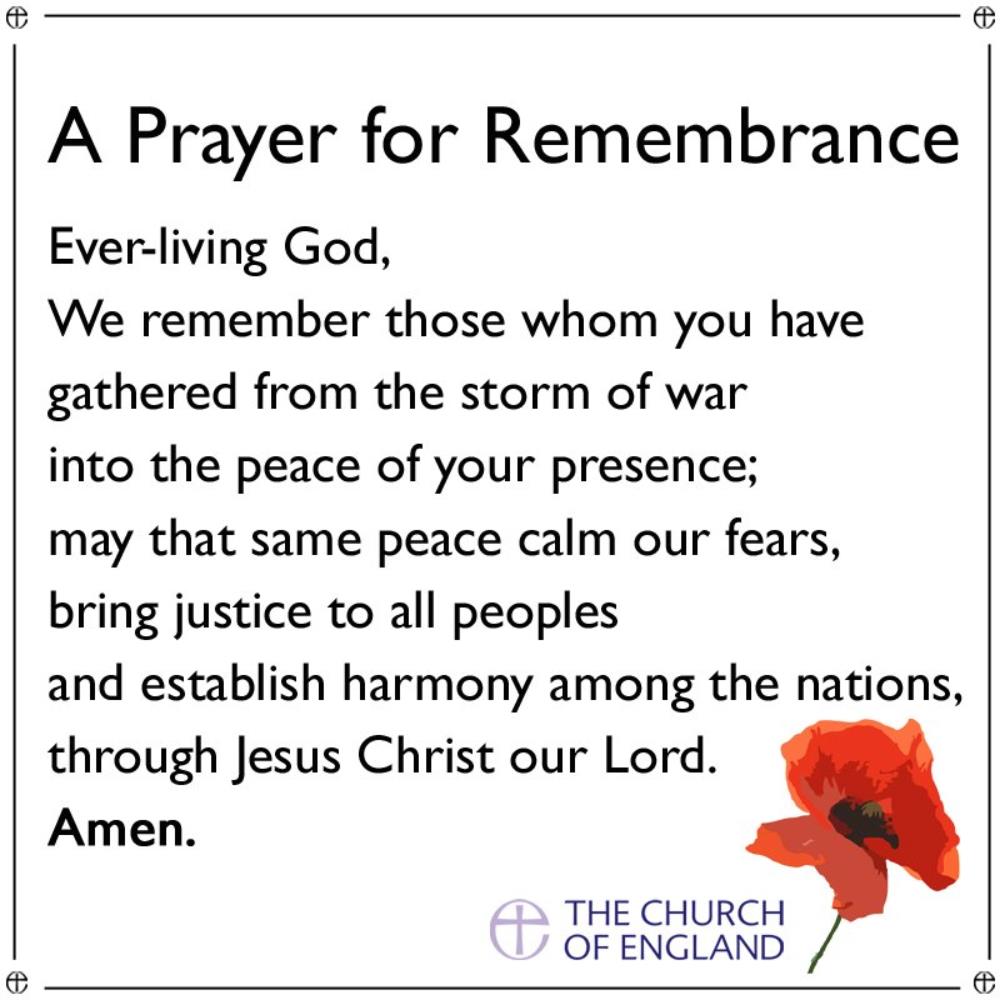11th. November. 2020. Daily Devotion.
Psalm 20
For the director of music. A psalm of David.
1 May the Lord answer you when you are in distress;
may the name of the God of Jacob protect you.
2 May he send you help from the sanctuary
and grant you support from Zion.
3 May he remember all your sacrifices
and accept your burnt offerings
4 May he give you the desire of your heart
and make all your plans succeed.
5 May we shout for joy over your victory
and lift up our banners in the name of our God.
May the Lord grant all your requests.
6 Now this I know:
the Lord gives victory to his anointed.
He answers him from his heavenly sanctuary
with the victorious power of his right hand.
7 Some trust in chariots and some in horses,
but we trust in the name of the Lord our God.
8 They are brought to their knees and fall,
but we rise up and stand firm.
9 Lord give victory to the king!
Answer us when we call!
Memorial to the Fallen
Our memorials speak eloquently of those who built them. We see some vainglorious celebration of the mighty victories of a tyrant and we see a memorial to selfishness. We see the catalogue of subjugation on Trajan’s column, or the fierce call to arms of the figure of victory on Napoleon’s Arch of Triumph and we see the false gods of conquest, of history seen through the lens of great men, mighty powers.
But today, in this place, we stand in silence before a simple stone memorial. We see the names written upon it, and we remember them: we remember those whom we never knew; we remember those whom we knew once in a distant and otherwise forgotten time; and we remember those whose death yet sears our souls. For in the names written upon this simple stone we see the values of a nation which knows that the reality of war is not about great men and their fantasies of conquest, but about ordinary people like you and me, ordinary people who, in doing their duty, paid a price which no-one should ever be called upon to pay.
Each generation in each nation faces its own trials – war, famine, pestilence (as today we are only too aware) and death. And in each generation, in each war, we say, and we believe, “never again”; and yet it comes, always again. It is bound, always, to come again, for the sentiment “never again” is born of a belief that war is only ever about a black and white struggle between good and evil, that good will always win, and that the victory which good can gain through using the weapons of war can ever be anything more than merely provisional. It is only at the end of all things, that the Psalmist’s promise of final victory will be realised. Until then, young men and women will continue to shed their blood, and we shall continue, in times of peace and times of war in times of prosperity and times of pestilence, to lay our wreaths of poppies.
The poppy is a powerful symbol, which captures so perfectly not only the sacrifice, but also the ambivalence of war. Poppies: individual splashes of red, each insignificant, yet carpeting the mud of Flanders, and of so many battlefields since, Poppies: the colour of the blood that was and continues to be spilled in war; yet, also, poppies, fragile flowers, living still in the midst of death, living as the sacrifice of the fallen still lives, lives in the hearts of those who come after them, lives in our hopes, lives in our dreams, lives in our memories, lives in our thanksgiving. Iain G Mitchell
Prayer
Word of God, as the Most High, our one hope,
Everlasting light of heaven and earth,
We break the silence of the peaceful night;
Saviour Divine, cast thine eyes upon us!
Pour on us the fire of thy mighty grace,
That all hell may flee at the sound of thy voice;
Banish the slumber of a weary soul,
That brings forgetfulness of thy laws!
O Christ look with favour upon thy faithful people
Now gathered here to praise thee;
Receive their hymns offered to thy endless glory;
May they go forth filled with thy gifts. Amen ~ “Cantique de Jean Racine”,
https://www.youtube.com/watch?v=pB_3rG7KZyU

